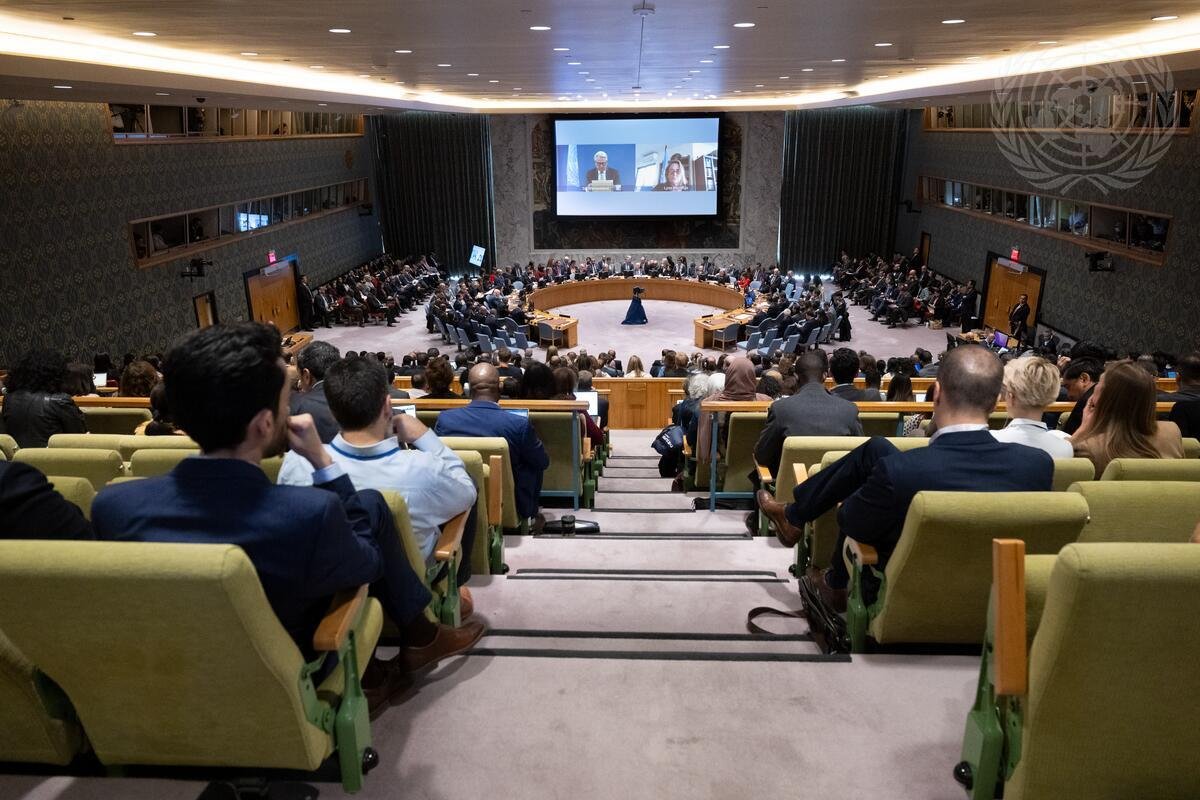
“I am always thinking about the serious situation in Palestine and Israel,” the pope said during his weekly general audience in St. Peter’s Square Oct. 25.
“I encourage the release of hostages and the entry of humanitarian aid into Gaza,” he said, and “I continue to pray for those who suffer, to hope for avenues toward peace in the Middle East and martyred Ukraine and in other regions wounded by war.”
More than 200 people were believed to be held by Hamas and other Palestinian militant groups in Gaza after their attacks on Israel Oct. 7. While some aid was coming in from Egypt, Israel has imposed a full blockade on Gaza.
The pope spoke the morning after Archbishop Gabriele Caccia, the Vatican’s permanent observer at the United Nations, told the Security Council that although dialogue seems impossible right now, it is the “only viable option for a lasting end to the cycle of violence” that has plagued the Holy Land.
“Amidst the escalating violence, it is imperative for the authorities of the state of Israel and the state of Palestine to demonstrate audacity to renew their commitment toward a peace based on justice and respect for the legitimate aspirations of both sides,” said the archbishop.
“The Holy See remains convinced that the two-state solution still offers hope for such a peace,” he said during a Security Council open debate Oct. 24 on “the situation in the Middle East, including the Palestinian question.”
“In the most absolute terms and unequivocally,” the archbishop said, the Holy See condemns “the terrorist attack carried out by Hamas and other armed groups” against Israel.
“Thousands were barbarically killed and wounded. Others were taken hostage,” he said. “These crimes demonstrate utter contempt for human life and are unjustifiable,” he said, repeating the pope’s call for the release of hostages.
The “distressing escalation of violence,” the archbishop said, has caused “deplorable levels of suffering” in a land that is “so dear to Christians, Jews and Muslims.”
At the same time, Archbishop Caccia said that “the criminal responsibility for terrorist acts is always personal and can never be attributed to an entire nation or people,” for example, by blaming all Palestinians or even all the people of Gaza for the actions of Hamas and allied groups.
Israel’s right self-defense, like the right of every nation attacked, “must always comply with international humanitarian law, including the principle of proportionality,” he said.
The Vatican is seriously concerned about the “unfolding humanitarian disaster in Gaza, which has claimed thousands of lives and has displaced hundreds of thousands of people,” he said. Israel’s “total siege” of the territory is causing “indiscriminate suffering among the population, including due to shortages of food, fuel and medical supplies.”
Archbishop Caccia repeated Pope Francis’ call for “the urgent facilitation and the continuation of humanitarian corridors so that aid can reach the entire population.”
